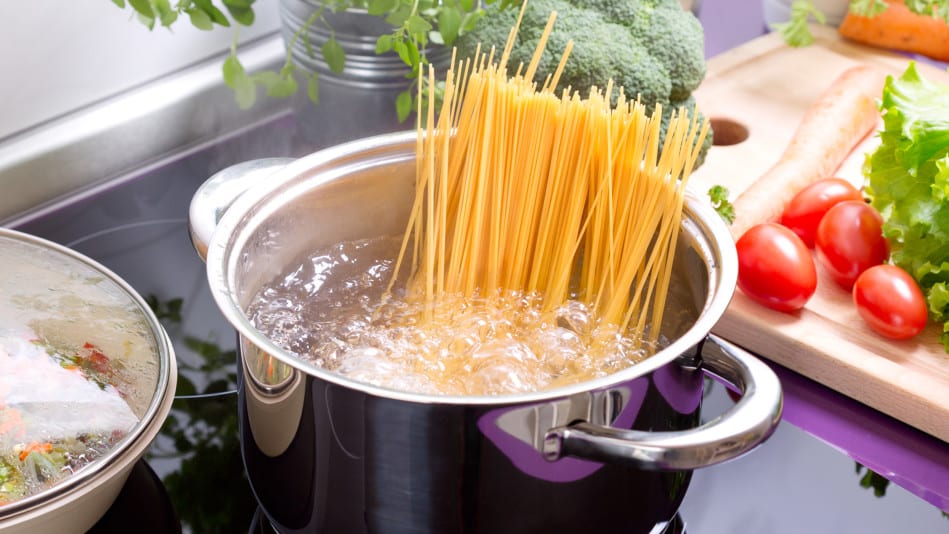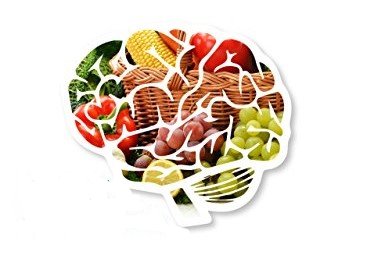
by Έλλη Κουνάδη | Mar 31, 2020 | Student life
Going from minority to adulthood by entering
university brings someone face to face with various changes. Not only the way
of living and place of residence alters, but in most cases, a person has to
leave his parents’ house and live all alone in another place. Simply put, he
has to take his life in his own hands and survive all by himself. One of the
most important issues he needs to deal with is food.
So, you enter university, you find a house to live in,
your parents clean it, they furnish it, your mother cooks food for you to have
for about a month and they leave. Thus, your need for food is covered for some
time, as you have supplies from your mum. When you first run out, you don’t get
at all anxious. You’ve got some money, so you can order takeout. You become the
master of takeouts, all restaurants and food stores call you by your first
name, they’ve learned your orders by heart, the delivery boy tells you about
his day every time he comes to your place. Everything is perfect. For just one
month. Then you suddenly understand that you’ve wasted all of your money on
takeouts. And you’re broke. Soon you realize: you have to cook.
Let’s be clear here. You cannot cook. At all. You
can’t even tell the difference between a pan and a pot. Once you tried to cook
pasta and eventually you ate it parboiled. Anyway, since you have no other
option, you are going to have to try it. At first, it will be a bit hard, but
no need to worry, you’ll learn. How difficult can it be?
You think it would be better to start with something
precooked. This should be very simple, you just buy it, bake it and eat it. So,
you go to the supermarket, you buy a cheese pie, you return to your house and
bake it. You taste it. It’s burned on the edges and raw in the middle. Someone
just won a cooking loser prize! Anyway, you eat what is edible, throw the rest
of the pie and decide to cook something else. For the rest of the month, you
just eat pasta. Not with cheese, some sauce or anything. Just pasta. At some
point, you get sick of it. You want to taste something else. Something gourmet
and fancy. But, since you don’t have that much of experience in cooking, you
decide to begin with a salad. You’ve got tons of ideas: salad with tuna, with
omelette, with beans –in order to please your parents, who keep telling you to
eat legumes. And finally, out of these delicious recipes, you pick the tastiest
one: salad with peanut butter dressing! At this point, all chefs quit their
jobs and your parents have already called an ambulance to pick you up from your
place and take you to the hospital to have a stomach pump. But you are tough
and you keep trying to cook. And you end up, most of the times, eating
sandwiches. The most traditional student meal.
To make a long story short, your student life as
regards food will mostly be about takeouts, campus food and your attempts to
cook at home. And, as the time goes by, things are going to get better and
better. And at some point, sooner or later, you’ll manage to cook something if
not tasty, at least edible! So, my little chef, don’t you get discouraged! Keep
trying and you’ll make it!

by Έλλη Κουνάδη | Mar 31, 2020 | Student life
You have just
finished school and you’re about to go to the university. You have already
chosen the departments you wish to study at. Now, the only thing to know is the
place you are going to stay at for the next 4-5 years. Suddenly, here comes the
news: you will go to Corfu. At first, you are going into a shock. And that’s
normal: you don’t know how it’s going to be, whether you are going to survive
or not. Well, don’t you worry. Corfu is a nice place to study at. Quiet, but
interesting. As long as you are willing to explore it.
A common saying notes
that “the first step is always the hardest”. And that’s true. The first
semester in Corfu, which includes the arrival on the island and the first
period of adjustment there is very difficult. As a student, you will face
problems on your housing, your staying in the island and your entertainment.
Let’s be honest. The cost of living in Corfu is expensive. House rents and
prizes in markets, cafeterias and restaurants are sufficiently high. In
addition, it’s a bit difficult to find ways to entertain yourself in the
beginning, as Corfu is a touristic place and student haunts are “hidden”. Last,
but not least, weather isn’t at all helpful, as it’s mostly rainy and windy. No
umbrella survives here, as it either breaks because of the wind or it gets
stolen! However, student life in Corfu doesn’t only have negative points.
In Corfu, at first
you’ll be crying to come. After a while, you’ll be crying to leave. It’s not
only its lovely beaches, its memorable history and its traditional narrow
alleys in the Old Town which contribute to this change. The musical culture of
the island, as well as the variety of ways of entertainment it provides once
someone begins to explore it can also contribute to making someone fall in love
in this place. In Corfu, you can go for a coffee, beer, drink some wine in one
of the small taverns in the Old Town, attend a party organized by university
students. Or you can just go for a walk to Spianada and Liston square, to the
Old Fortress or somewhere away from the center of the town. Also, here, you
will have the opportunity to enjoy the rich musical culture of the island,
which sustains its splendor. Finally, university students form an important
part of the society. They often organize various events, not only in the center
of the town, but also in the countryside, which awaken the interest and
fascinate the citizens of the island. One of these events is
TEDxIonianUniversity, which was firstly organized in 2019 and this year comes
back to rock the boat in Corfu during spring 2020.
Being a student in
Corfu may seem difficult in the beginning. However, after a while, you will
understand that you will have a great time, gain experience and make new
friends. And at the end, you won’t want to leave it.

by Έλλη Κουνάδη | Mar 31, 2020 | Uncategorized
Further to the speech of the neuroscientist Camilla
Arndal Andersen during TED@DuPont in September 2019, we decided to study and
present one of the most necessary needs and at the same time most important
pleasures of humans: food. How does the food we eat affect our brain and body?
Is it just a human need, a source of satisfaction or maybe it includes
something more complicated and fascinating?
There is one thing which is widely known and
universally admissible: food is one of the most important pleasures of a
person. It’s not just a necessity, a way to ensure his survival. It’s actually
way more than that. This can be easily understood if observing its role on each
person’s everyday life and his whole existence as well. Food is everywhere, in
every moment of the human kind. It is included in his emotions and memories,
connected to his happiness and sadness. It creates, but also accompanies his
feelings. When we are happy, we want to eat, when we feel sad, angry, tired we
need food. But, how is this even possible? How can a meal determine our
thought, mood, actions?
Brain is one of the most complex organs of the human
body. It only constitutes 2% of our weight, however it “governs” the rest of
our organism. This organ, which only stops working when our life ends, needs
energy in order to function. And where does it get this energy from? Food. Each
ingredient contained into food plays a different role on the functioning of the
brain, as not only does it activate a particular part of it, but also helps
brain carry out different functions. As a result, when our body lacks or has a
stock of a specific food element, its brain, which is actually its control
center, reacts. But, let’s be a bit more specific, shall we? Is there anyone
who hasn’t felt like eating something sweet while studying? Or can anybody be
resented while tasting something that contains sugar? Well, not. And that’s
because sugar, which is actually a kind of carbohydrates, produces stimulation,
gives us more energy and makes us feel better. On the other hand, when we
consume more protein, our organism regains its balance and thus our
attentiveness is raised and our tiredness gets eliminated. Finally, when we eat
food with high nutritional content, like fruits and vegetables, our brain
receives energy and is able to work for a longer period of time.
On the other hand, the overconsumption of specific
types of food can also affect our brain and the way we think and act. Firstly,
the excessive consumption of sugar and carbohydrates causes hyperstimulation
and after the quick drop of our mood when our body metabolizes the food it
received. In addition, high levels of unnecessary fats in our body negatively
affect the health of our brain, as they have an impact on our mood, sleep and
attentiveness.
It seems that food is not only something that helps
people cover one of their most important needs. On the contrary, it causes
emotions and often affects our behavior. So, the next time you taste something,
remember that your choices have a direct impact on the most powerful organ of
your body.



